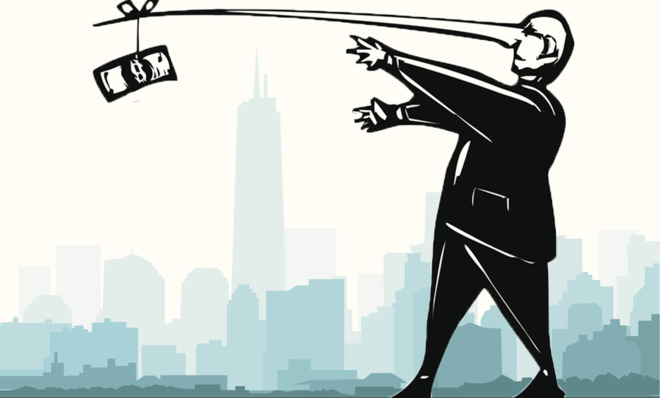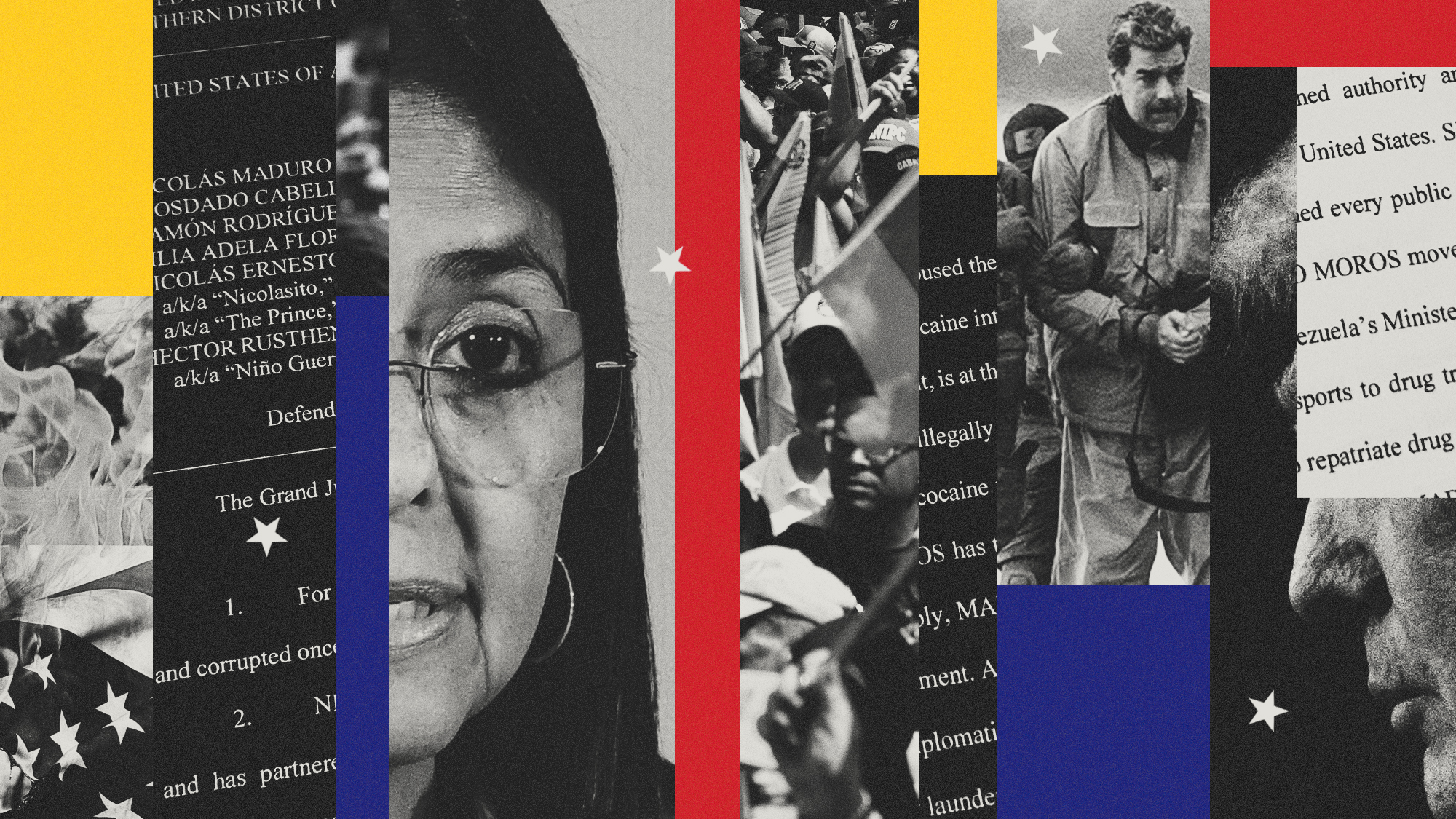The conservative case against capitalism
The left's anxiety about concentrated wealth was anticipated almost a century ago — by the Catholic right


With the red hair of one she-urchin in the gutter I will set fire to all modern civilization. - G.K. Chesterton
My colleague Ryan Cooper and many others have recently praised the work of French economist Thomas Piketty, whose Capital in the Twenty-First Century was recently released in the United States. Cooper summarizes Piketty's thesis this way: "Piketty's analysis of the last two centuries makes the case that capital in its natural state does not tend to spread out or trickle down, but to concentrate in the hands of a few." This, in other words, is patrimonial capitalism.
Another reader says that Piketty makes much of the fact "that poor people don't own productive assets, so they must rely entirely on labor for income." Timothy Noah, in his review of the book, defends its focus on income inequality: "[I]t's income that mostly interests us, not wealth, because income is the currency of the modern economy." In my mind, Piketty's critique of capitalism also fits with some broader trends on the left to rail against the plutocrats who pull the strings in this country — to criticize the "tyranny of the boss," as it were.
But these very features of "patrimonial capitalism" were once criticized by figures that today we would say are "on the right." Their opposition provides insight not only into early critiques of an economic system that was then still up for debate, but also into what contemporary conservatives should strive for when they speak of economic freedom.
The Week
Escape your echo chamber. Get the facts behind the news, plus analysis from multiple perspectives.

Sign up for The Week's Free Newsletters
From our morning news briefing to a weekly Good News Newsletter, get the best of The Week delivered directly to your inbox.
From our morning news briefing to a weekly Good News Newsletter, get the best of The Week delivered directly to your inbox.
Patrimonial capitalism was criticized not as a technical bug in an otherwise benign system, or a managerial problem to be ameliorated by socialist dreams. No, it was criticized in moral terms as a demonic attack on the freedom of the family and an assault upon man's dignity. For Hilaire Belloc and G.K. Chesterton, the English Catholic distributists, the problem wasn't inherited wealth leading to patrimonial capitalism: it was the mass of men being re-impressed into slavery within "the Servile State."
Inspired by the social teaching of the Catholic Church — which condemned both the rapaciousness of capitalism and the alleged antidote of socialism — the "Chesterbelloc" went to work. Their defense of a "proprietarian" economy over the capitalist and socialist variety is by turns rousing, incomplete, offensive, beautiful, economically illiterate, baffling, over-nostalgic, and far too revolutionary. But their conservative case against capitalism is still deeply inspiring.
For the purpose of explaining this theory, I'll rely heavily on Belloc's "An Essay on the Restoration of Property." Belloc anticipated Timothy Noah's overweening concern for a proper income in that essay, saying capitalism's reliance on income was precisely what had returned men to a state of servility. True freedom, in Belloc's theory of history, came from property:
When men have become wage slaves they think in terms of income. When they are economically free they think in terms of property. Most modern men living under industrial conditions regard economic reform as essentially a redistribution of income; property is for them an illusion; the reality behind it is income...
Belloc views the process of "capitalism" over the century that preceded him as the re-dispossession of the middle-class and peasants of their post-feudal property — the property on which their freedom was made real and effective. For Belloc, asking for the redistribution of a little more gruel did not even begin to make up for this loss:
A free daily email with the biggest news stories of the day – and the best features from TheWeek.com
The masses are kept alive, they are taught by a subsidy in childhood, treated by a subsidy in illness, and maintained by a subsidy in old age, widowhood and incapacity from accident. Soon no one of them may be suffering either hunger or cold or lack of any plain material necessity consonant to the type of civilization in which they live. But their activities are at the mercy of their masters.
For Belloc, real freedom meant not collective ownership through the state, but private property distributed so widely and thoroughly that the bulk of families could provide for themselves. No class would ever be reduced to complete dependence on oligarchs or party apparatchiks. Widely distributed private property would give most people the means to escape the tyranny of the boss (much talked about on the left today) and the tyranny of the managerial state (the bogeyman of the right).
[It] would suffice for the health of the State by the Restoration of Property if, at the end of the reforming process, so many families were found possessed of property (in a sufficient amount) to give their tone to the State; just as today the wage earner and salary earner, the proletarians of every grade, give their proletarian tone to the State.
Democracy alone was totally inadequate to ensure freedom and dignity. Belloc maintained that crony capitalism was the inevitable result once the wealthy classes had reduced all others to dependency and their full weight of influence corrupted the legislature. A society with well-distributed property would provide a check against the rich and the state both. "The family must have not only power to complain against arbitrary control external to it, but power to make its complaint effective," he wrote.
Even today, millions of Americans intuitively agree with Belloc's definition of freedom as including some form of economic independence. But for most Americans it is an aspiration, something for the lucky or the extraordinarily productive, or both. When listeners tune in to financial guru Dave Ramsey looking for "financial peace," he urges them to thrift and a tenacious desire for increased income, so that one day they can turn that income into productive property; their own business, their own trade, or even enough mutual funds that they never be at the mercy of a boss again. People really do fantasize about how they would quit their jobs, which serves to dramatize their dissatisfaction and makes plain to their bosses the indignities they suffer as wage-slaves.
But the critique of the distributists goes further. Extraordinary personal virtue may effectively free a few families, but is not enough to create a society characterized by freedom — not when capitalists have rigged the game as thoroughly as they have. The redistribution of property would necessarily require state intervention, because the concentration of property would be protected by the rules of that game. Belloc's distributist order was one where society remained powerful, families mostly free, and the state mostly contained. He theorized that taxes would go up in capitalism's Servile State, to subsidize the wage-earners and dependents, but would be constrained in his ideal.
There's plenty for the modern reader to choke on in distributist thinking. They were fiercely and unapologetically Catholic, and wanted to protect hearth and home. Belloc defended the gold standard (and was pretty improvident with money himself). They over-romanticized French peasantry and the late Middle Ages generally, and exaggerated Protestantism's role in the Industrial Revolution. They exaggerated the role of Jews in finance and revolutionary politics, though they did both oppose Hitlerism very early on account of its anti-Semitism and eugenics. Their ideas have also been picked up occasionally by unsavory advocates of "third way"-style fascism.
But the distributists still have something to offer contemporary conservatives, namely the ideas that economic freedom is measured by the way families flourish; that economic freedom means more than just an income with a boss or a government agency at the end of it; that real freedom is the ability to say no to tyrants in both the public and private spheres. They could profit much from Belloc's insights into how the plutocracy corrupts both representative government and the market. And they could also benefit from grounding their politics, as the early distributists did, not just in theories of liberty or trust in the invisible hand of the market, but in the supreme dignity of man.
Chesterton, always the better stylist than Belloc, could work himself into righteous fury in defense of the distributist ideal over the capitalist one. He gave that ideal a peroration in the book What's Wrong with the World that suffices as a conclusion for this article, because it has all the revolutionary romance and inevitability of Marx, but more moral force and beauty:
With the red hair of one she-urchin in the gutter I will set fire to all modern civilization. Because a girl should have long hair, she should have clean hair; because she should have clean hair, she should not have an unclean home: because she should not have an unclean home, she should have a free and leisured mother; because she should have a free mother, she should not have an usurious landlord; because there should not be an usurious landlord, there should be a redistribution of property, because there should be a redistribution of property, there shall be a revolution. That little urchin with the gold-red hair, whom I have just watched toddling past my house, she shall not be lopped and lamed and altered; her hair shall not be cut short like a convict's; no, all the kingdoms of the earth shall be hacked about and multilated to suit her. She is the human and sacred image; all around her the social fabric shall sway and slip and fall; the pillars of society shall be shaken, and the roofs of ages come rushing down; and not one hair of her head shall be harmed.
Michael Brendan Dougherty is senior correspondent at TheWeek.com. He is the founder and editor of The Slurve, a newsletter about baseball. His work has appeared in The New York Times Magazine, ESPN Magazine, Slate and The American Conservative.
-
 January’s books feature a revisioned classic, a homeschooler's memoir and a provocative thriller dramedy
January’s books feature a revisioned classic, a homeschooler's memoir and a provocative thriller dramedyThe Week Recommends This month’s new releases include ‘Call Me Ishmaelle’ by Xiaolu Guo, ‘Homeschooled: A Memoir’ by Stefan Merrill Block, ‘Anatomy of an Alibi’ by Ashley Elston and ‘Half His Age’ by Jennette McCurdy
-
 ‘Jumping genes': How polar bears are rewiring their DNA to survive the warming Arctic
‘Jumping genes': How polar bears are rewiring their DNA to survive the warming ArcticUnder the radar The species is adapting to warmer temperatures
-
 Venezuela’s Trump-shaped power vacuum
Venezuela’s Trump-shaped power vacuumIN THE SPOTLIGHT The American abduction of Venezuelan President Nicolás Maduro has thrust South America’s biggest oil-producing state into uncharted geopolitical waters
-
 Bari Weiss’ ‘60 Minutes’ scandal is about more than one report
Bari Weiss’ ‘60 Minutes’ scandal is about more than one reportIN THE SPOTLIGHT By blocking an approved segment on a controversial prison holding US deportees in El Salvador, the editor-in-chief of CBS News has become the main story
-
 Has Zohran Mamdani shown the Democrats how to win again?
Has Zohran Mamdani shown the Democrats how to win again?Today’s Big Question New York City mayoral election touted as victory for left-wing populists but moderate centrist wins elsewhere present more complex path for Democratic Party
-
 Millions turn out for anti-Trump ‘No Kings’ rallies
Millions turn out for anti-Trump ‘No Kings’ ralliesSpeed Read An estimated 7 million people participated, 2 million more than at the first ‘No Kings’ protest in June
-
 Ghislaine Maxwell: angling for a Trump pardon
Ghislaine Maxwell: angling for a Trump pardonTalking Point Convicted sex trafficker's testimony could shed new light on president's links to Jeffrey Epstein
-
 The last words and final moments of 40 presidents
The last words and final moments of 40 presidentsThe Explainer Some are eloquent quotes worthy of the holders of the highest office in the nation, and others... aren't
-
 The JFK files: the truth at last?
The JFK files: the truth at last?In The Spotlight More than 64,000 previously classified documents relating the 1963 assassination of John F. Kennedy have been released by the Trump administration
-
 'Seriously, not literally': how should the world take Donald Trump?
'Seriously, not literally': how should the world take Donald Trump?Today's big question White House rhetoric and reality look likely to become increasingly blurred
-
 Will Trump's 'madman' strategy pay off?
Will Trump's 'madman' strategy pay off?Today's Big Question Incoming US president likes to seem unpredictable but, this time round, world leaders could be wise to his playbook
